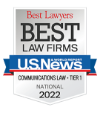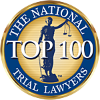Thinking of Blowing the Whistle on Government Fraud? 6 Don’ts and 1 Critical Do
Do you suspect fraud against the government by your employer? Choosing to come forward is the right thing to do, and there’s also a right way we suggest you do it. To help guide you, we’ve created this list of six don’ts and one very important do if you’re considering becoming a qui tam whistleblower.
Potential whistleblowers sometimes contact us from work when they become aware of fraud. Unfortunately, your work email is not private and can be accessed by your employer. Always email only from your personal address.
Call records and text messages on your work phone can be accessed by your employer. When your employer becomes aware of a fraud complaint against their business, don’t make it easy for them to identify who the whistleblower is — and potentially retaliate against you. Use only your personal device.
One of the reasons you may be thinking about coming forward is a sense of civic duty. You may want to make other taxpayers aware of your employer’s fraud. But posting your suspicions and evidence on social media is not the proper forum. Your posts may give your employer an opportunity to cover their tracks, or a follower may bring your suspicions to the government first – potentially getting an award instead of you.
It’s tempting to share your suspicions with your coworkers. In addition to the emotional support they can provide, they can help confirm your suspicions or gather key evidence. Unfortunately, we’ve seen situations where a potential whistleblower confides in a coworker, only for the coworker to go to the government first — and thus be in the best position to get a possible award. Your coworker may even report you to management, causing possible retaliation and giving your employer time to destroy any incriminating evidence.
If you quit your job and then file a qui tam complaint, your employer may find it easy to identify the source of the complaint. In addition, if you are still employed, you still have the opportunity to access evidence that virtually no one else can get. If you quit your job, you lose that advantage. While every situation is different, it is typically beneficial to contact an experienced whistleblower attorney as soon as possible to discuss the pros and cons of changing your employment situation.
The reporting processes and protocols of your company are designed to protect the company, not you. Don’t give your employer a chance to erase any evidence of their wrongdoing. Instead, your first call should be to someone who can fight for your best interests…
If you suspect fraud against the government, contact an experienced whistleblower attorney. You may be entitled to an award for exposing fraud, but reporting fraud the wrong way can invalidate your claim.
Let’s talk. We can discuss your concerns and help you determine the course of action that’s right for you. It’s part of our commitment to always put you first, including fighting for your protection from retaliation.
To have an accomplished whistleblower attorney evaluate your claim – confidentially and at no cost – call 1-888-292-8852.
“Bill has the ability to ‘think outside the box’…which makes him extremely effective as an advocate for his clients.” 1 — Attorney who previously worked with Bill





If you’re wondering if it’s a good idea to speak with a whistleblower lawyer about what you know, let us set the record straight.
"*" indicates required fields